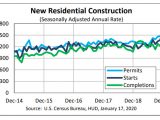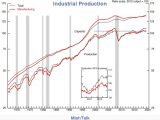The 2015-2019 global temp average warming is .934C, and the final details on the climate bet
January 17, 2020
December 2019 GISS data came out recently, and hot: 1.1C over baseline. 2019 is the second hottest year on record after 2016, and if temps from 2019's final quarter carry over in 2020, then this year will once again be a new record.
While David Evans already conceded and paid our bet earlier this month, we can now do the final calculations. To win both parts of our bet, I needed temps to go up on decadal basis of .18C. The 2005-2009 temps averaged .636C over baseline, so I needed 2015-2019 to go up to .816C. The actual rise was to .934C, nearly .12C above what I needed to win. As I wrote before, I was somewhat lucky with how El Ninos played out, but I doubt it made that much of a difference.
Another way to look at it would be what temps I would've needed to avoid losing. We had a voiding outcome range where if the temps fell somewhere in the middle of our bet postions then neither of us would win. Any increase over .13C meant I wouldn't lose, translating into an expectation of 2015-2019 reaching only .736C over baseline. That's nearly .2C lower than actual, and even harder to imagine being affected by El Nino. So in sum, very bad yet unsurprising news for the climate that I've won this first bet.
And now we begin the second bet, comparing 2020-2024 to 2005-2009. A per-decade rate of .18C over a 15-year period is .27C, so I'm winning my bet for any temps of .91 or higher between now and 2024. The last five-year period already exceeded that mark, and it's only getting warmer.
While David Evans already conceded and paid our bet earlier this month, we can now do the final calculations. To win both parts of our bet, I needed temps to go up on decadal basis of .18C. The 2005-2009 temps averaged .636C over baseline, so I needed 2015-2019 to go up to .816C. The actual rise was to .934C, nearly .12C above what I needed to win. As I wrote before, I was somewhat lucky with how El Ninos played out, but I doubt it made that much of a difference.
Another way to look at it would be what temps I would've needed to avoid losing. We had a voiding outcome range where if the temps fell somewhere in the middle of our bet postions then neither of us would win. Any increase over .13C meant I wouldn't lose, translating into an expectation of 2015-2019 reaching only .736C over baseline. That's nearly .2C lower than actual, and even harder to imagine being affected by El Nino. So in sum, very bad yet unsurprising news for the climate that I've won this first bet.
And now we begin the second bet, comparing 2020-2024 to 2005-2009. A per-decade rate of .18C over a 15-year period is .27C, so I'm winning my bet for any temps of .91 or higher between now and 2024. The last five-year period already exceeded that mark, and it's only getting warmer.


